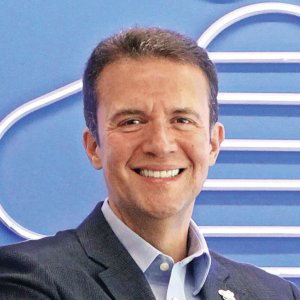Evolution and its Threats

STORY INLINE POST
In life, there are situations that test the status quo of people and entire communities at all levels. As examples, we can mention the Chicxulub asteroid that selectively caused the extinction of the Mesozoic era, the attack on Pearl Harbor on the paradisiacal island of Hawaii, the Hiroshima and Nagasaki bombs, Perestroika, the attack on the twin towers and recently a pandemic.
All of this reinforces what strategic thinkers have commented on, that the great threats to humanity are nuclear war, a pandemic, and incompetent leadership.
It is possible that we are exiting the COVID-19 pandemic and entering an endemic phase. Now would be the time for a "debriefing" to understand what we did well, and what we didn´t do so well, because surely and more frequently, we will be facing new threats involving the healthcare sector in the future.
In this context, we must apply that wise phrase attributed by some to the American poet and philosopher of Spanish origin Jorge Agustín Nicolás Ruiz de Santayana y Borrás and by others to the lawyer, journalist, politician, statesman and former President of Argentina Nicolás Avellaneda: "The people who do not know their history are condemned to repeat it."
In that light, I would like to focus on the application of technology and other essential components in the healthcare industry whose development and adoption have been accelerated by five to 10 years as a result of facing a global threat and the confinement of large parts of the population, with the challenge of seeking a solution while continuing to offer quality medical services.
Beneficiaries of this acceleration include research technology and the development of vaccines, the manufacturing of medical equipment and supplies, hospital infrastructure, video consultations, teleradiology, the use of "wearables" and electronic prescriptions, among others.
However, the same did not happen with legislation, regulations, telecommunications infrastructure, or the balance between pharmaceutical research and input manufacturers.
This resulted, first, in the great advantage of having vaccines in record time, monoclonal antibodies, and other drugs, hospitals converted to care for COVID-19 patients, and remote care systems that optimized the service.
On the other hand, it is also known that we suffered a shortage of other medicines due to dedicating resources and supplies to the pandemic, the overproduction of personal protective equipment due to lack of planning, the appearance of “fake” products in the post-COVID-19 stage and an anarchic use of technology amid a lack of an appropriate framework and parameters, as well as the appearance of opportunists exploiting legal loopholes.
It is also worth mentioning that the vulnerability of the healthcare systems, their lack of planning, and their fragmentation, highlighted by the lack of collaboration, were clearly and widely exposed. This is in addition to the social gap, which is dangerous and at great risk of evolving toward resentment and social unrest.
It also highlights the lack of personnel. One example has been the shortage of nursing staff, who were seriously exposed to the COVID-19 disease and are an essential component of the healthcare system as its eyes, ears and arms in order to allow it to function properly.
Let us remember that the pandemic is not over yet. It will be considered over when the WHO declares it; however, it is time to stop and reflect and analyze from a philosophical viewpoint in order to create precise definitions and actions that will allow us to face current and future threats more effectively than we did COVID-19.
Global warming, monkeypox, the appearance of multiresistant bacteria, the mutation to a vaccine-resistant strain of COVID-19, wars, food shortages, among other threats, force us to learn and create knowledge to try to prevent or reduce risks in the most efficient and functional way possible.
As humans, who have the differential characteristic of "reasoning," and in the understanding that we must wisely manage resources, analyze, foresee, learn and correct, we have an enormous responsibility at all levels: personal, family, institutional, private and public bodies, governmental and multinational.
In this context, it is important to meditate on the principle of socially conscious companies and industries, to be clear that, in order to create new alternatives, the first obstacle that we must overcome is the social gap, which means reducing it and in which an adequate healthcare system plays a vital role.
To conclude, it is important to mention two essential factors to consider: first, incompetent leadership is a serious threat to any social entity, even to humanity as a whole; and second, the window of time is limited and we must take advantage of it before reaching the point of no return, always remembering that the most precious non-renewable asset is time. Every second that passes, never returns.








 By Jorge Azpiri | Director of Development and Expansion Projects -
Thu, 08/04/2022 - 15:00
By Jorge Azpiri | Director of Development and Expansion Projects -
Thu, 08/04/2022 - 15:00
















